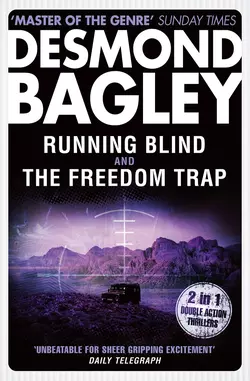Running Blind / The Freedom Trap

Desmond Bagley
Тип: электронная книга
Жанр: Современная зарубежная литература
Язык: на английском языке
Стоимость: 673.85 ₽
Статус: В продаже
Издательство: HarperCollins
Дата публикации: 18.04.2024
Отзывы: Пока нет Добавить отзыв
О книге: Double action thrillers by the classic adventure writer about a notorious Russian double agent, Slade, set in Iceland and Malta.RUNNING BLINDThe assignment begins with a simple errand – a parcel to deliver. But to Alan Stewart, standing on a deserted road in Iceland with a murdered man at his feet, it looks anything but simple. The desolate terrain is obstacle enough. But when Stewart realises he has been double-crossed and that the opposition is gaining ground, his simple mission seems impossible…THE FREEDOM TRAPThe Scarperers, a brilliantly organised gang which gets long-term inmates out of prison, spring a notorious Russian double agent. The trail leads Owen Stannard to Malta, and to the suave killer masterminding the gang. Face to face at last with his opponents, Stannard must try to outwit both men – who have nothing to lose and everything to gain by his death…Includes a unique bonus – A Matter of Months, a previously unpublished short story about a murder in a casino.